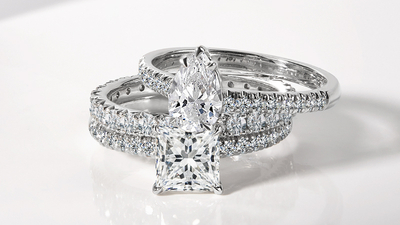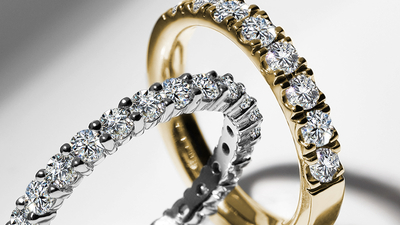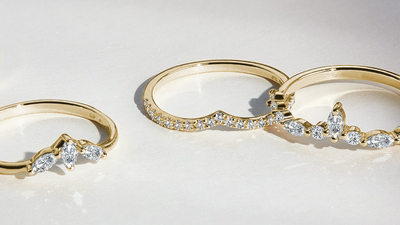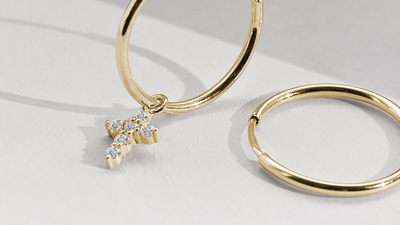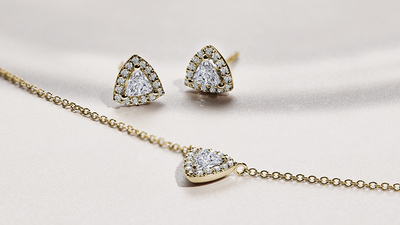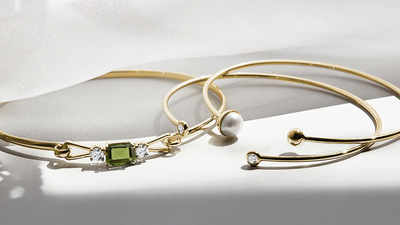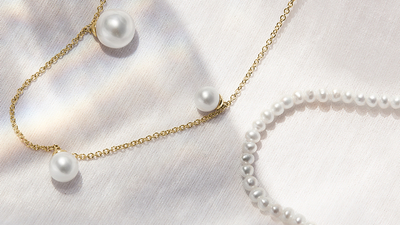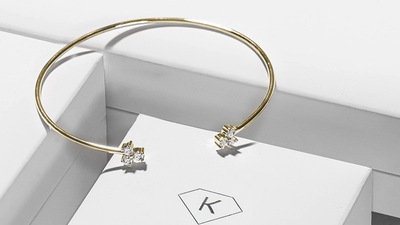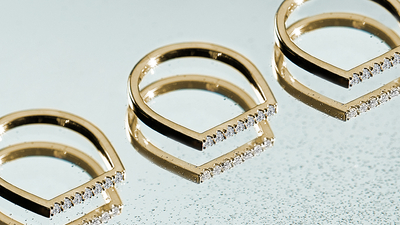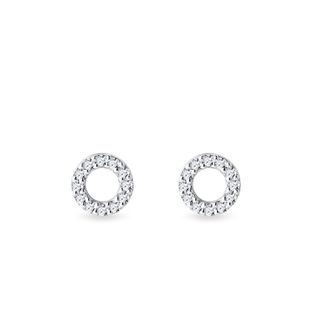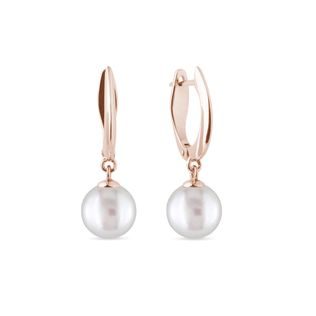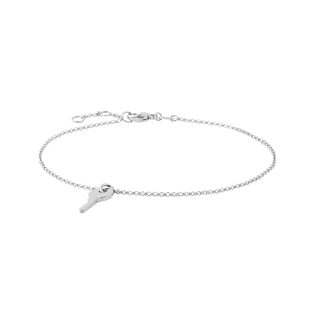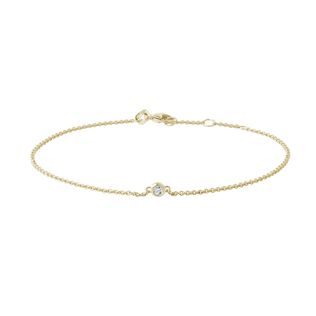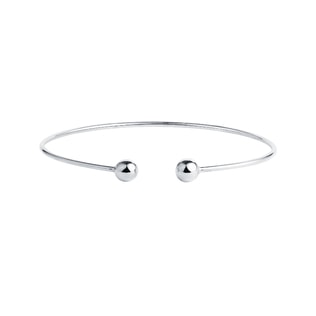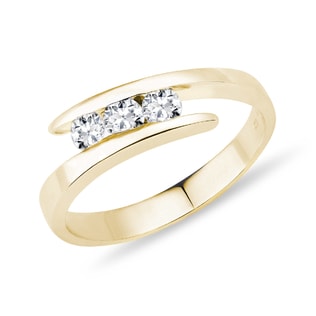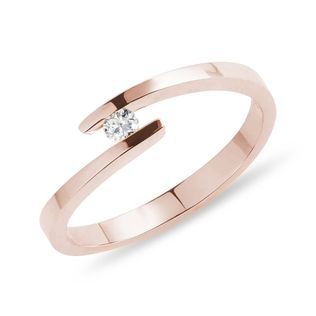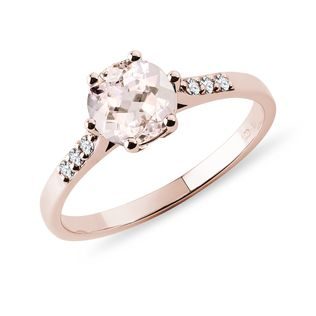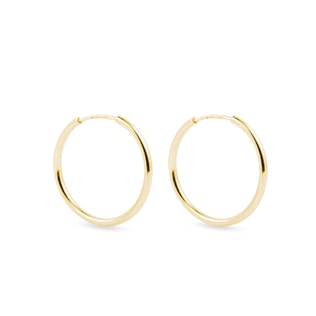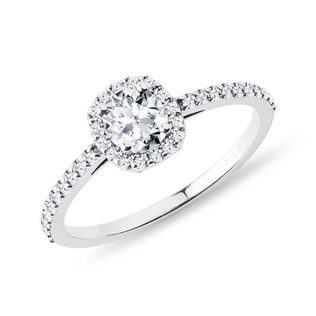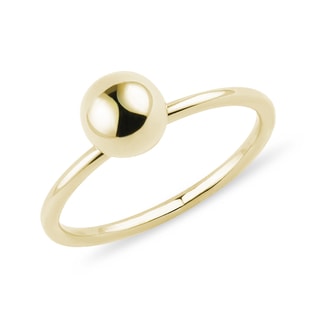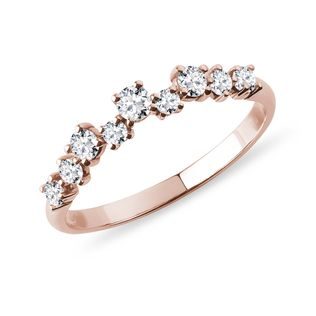What colour is gold? This question almost sounds like it is trying to catch you out. Most people would answer that it is of course golden yellow, that warm and radiant colour evocative of the sun. However many people know that gold does not have to be just yellow, but that it can also come in white or rose colour. There is a great deal of variety in jewellery nowadays, not only in terms of different styles but also in the new types of stones which are getting used. Experiments have also been made with the colour of gold. So when you’re choosing a piece of jewellery, you might find that you’re unsure of what criteria you should use to choose the colour of the gold you want. We will show you what the most common colours of gold are today, how they differ from each other, what their advantages and disadvantages are, and which of them will probably best fit with your style.
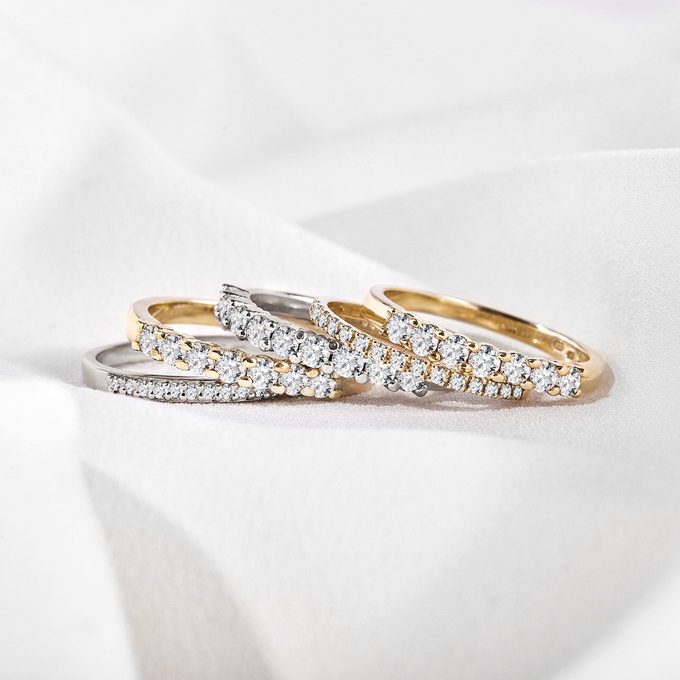
The key word is additives
Gold in its purest form is a precious metal with the chemical symbol Au. It is genuinely distinctly golden in colour so it is therefore much more yellow than the colour of gold jewellery that we commonly wear. Another of its properties is that it is relatively soft. In order to create a piece of jewellery that will last, gold needs to be mixed with other metals which give it the necessary hardness and durability. And it is these metal additives that also affect its final colour. What's more, particular additives are selected deliberately so that a specific colour variety of gold can be created.
The higher the number of carats in gold, the purer it is and the less additives it contains. Today, jewellery is most often made of 14 carat gold, which contains 58.5% of pure gold. Jewellery is made less frequently from 18 carat gold which contains 75% of gold. 18 carat gold is purer and more expensive, but it is also softer and more delicate.
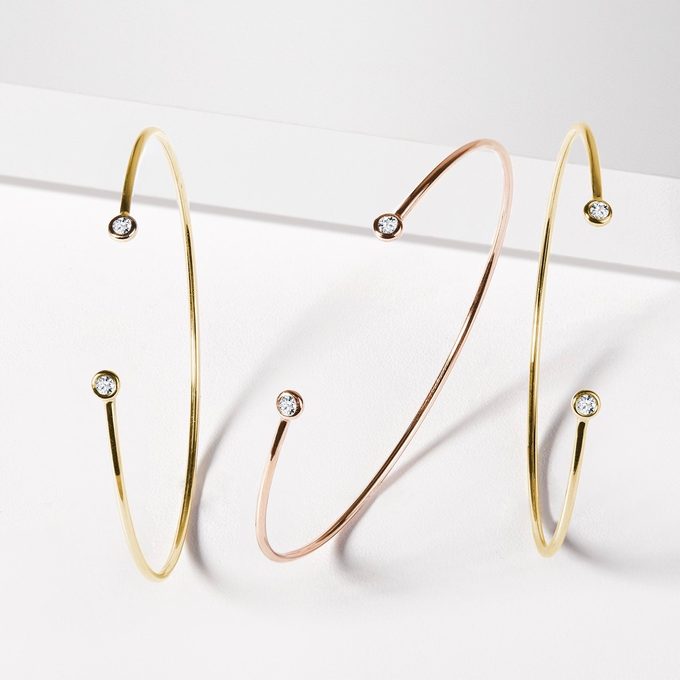
Yellow gold is produced by alloying (mixing) gold, silver and smaller amounts of copper. Though the proportion of actual gold is stated, the ratio of the other additives can vary. A higher ratio of silver gives the gold a softer and less pronounced tone, while a higher proportion of copper creates a dark yellow tone.
White gold is formed by adding metals that are silver-white in colour, such as silver, zinc, nickel or palladium. The gold can then also be treated with a surface treatment, namely rhodium plating, which gives the jewellery a greater shine and also provides it with at least some protection against scratches.
Rose gold is a mix of gold and copper. However, gold with the same carat purity always has the same proportion of gold, so it is certainly not the case that rose gold is less valuable than other gold colours. And this is confirmed by the fact that jewellery made of rose gold costs the same as white or yellow gold jewellery.
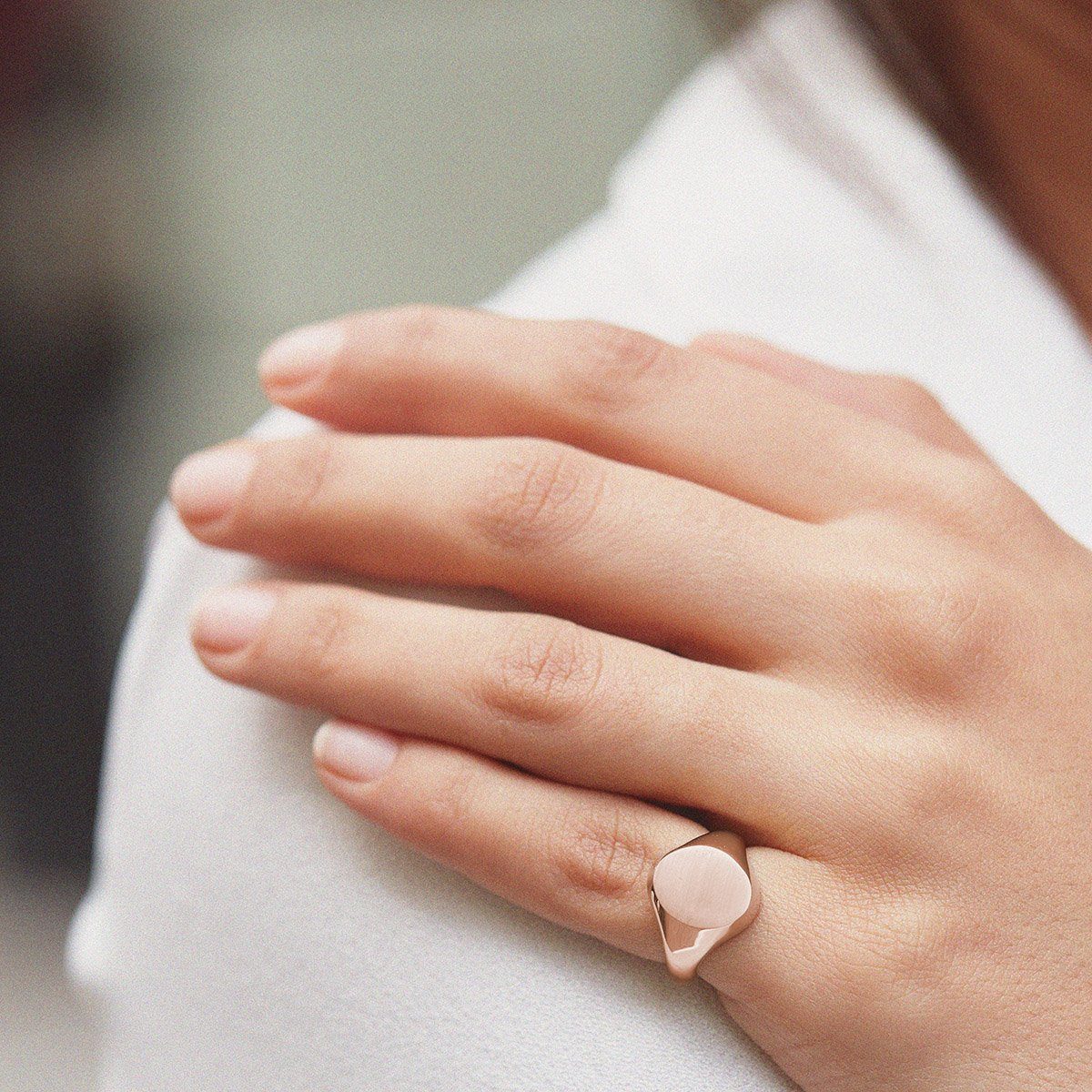
Choose the right colour of gold for you
For some, the main or only criteria for choosing a gold colour may simply be their personal preference. There are women who wear yellow or white gold all their lives and don’t want to change. After all, jewellery should be picked primarily from the heart. Only then will we wear it often and gladly, and it will also have a high emotional value for us.
However, our personal tastes are not always so strong that they can’t allow us to try something new, and so it often happens that on the contrary, we welcome a departure from stereotypes and we’ll gladly try something new. So choosing the colour of gold may therefore not be completely simple. Let's look at the differences of the individual colour varieties which are good to keep in mind when making a decision.
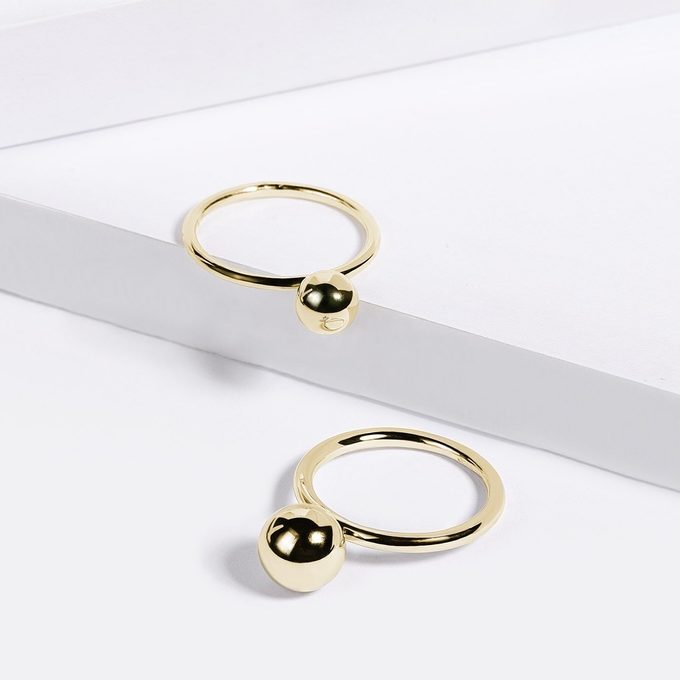
Durability
Some of the physical properties of gold may differ depending on what additives it contains. The most durable of our trio is perhaps surprisingly rose gold due to the copper which is added to it, since copper on its own has a relatively high hardness and thus it improves the durability of gold when it is added to it. In second place is white gold, while the softest is yellow gold.
Allergenic properties
Although in this regard, gold is better than silver or some other metals, it can also cause an allergic reaction in some people with a more sensitive skin. The lowest risk is with yellow gold, and the highest with rose gold, due to its copper content. The composition of gold is always a little different, so one piece may cause you problems while another might be fine. It really depends on which specific additive in the gold you are allergic to and the amount of it contained in the jewellery. With white gold jewellery, a reaction can be greatly reduced by rhodium plating the surface.
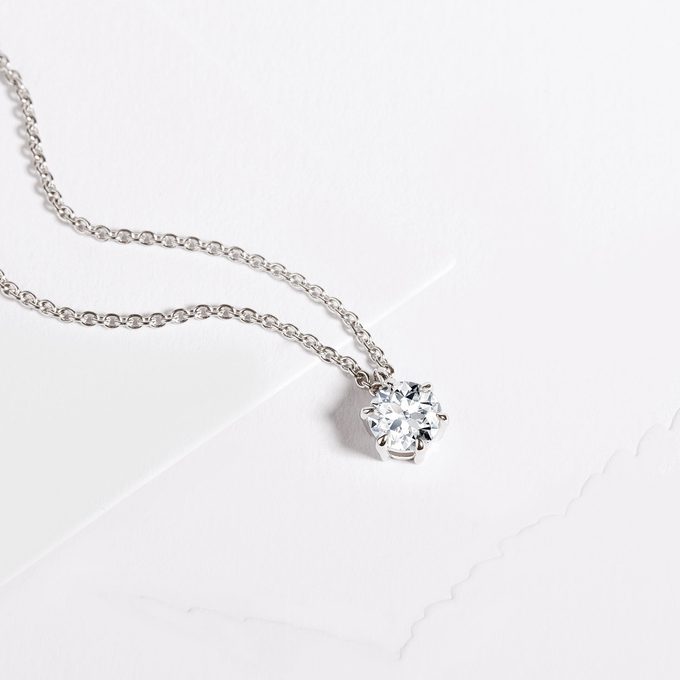
Your skin tone
For women with warmer skin tones, such as olive, brown, but also lighter shades with a hint of golden in it, yellow gold will suit them the best. If their skin is instead cooler or pinkish in tone, white gold will best enhance their natural beauty. And who does rose gold suit the most? Its advantage is that it contains both warm and cold shades, and therefore it is neutral in terms of skin tones and will suit every woman.
What gold is the most ‘in’ today?
Even when it comes to gold jewellery, it is possible to come across such peculiarities as purple coloured gold or even black gold. Timelessness is probably not a strong point of these gold varieties. However fashion is unpredictable and so even classic yellow gold began to lag behind in the mid-1990s. White gold emerged on the scene and dominated the market in both everyday jewellery, as well as engagement and wedding rings.
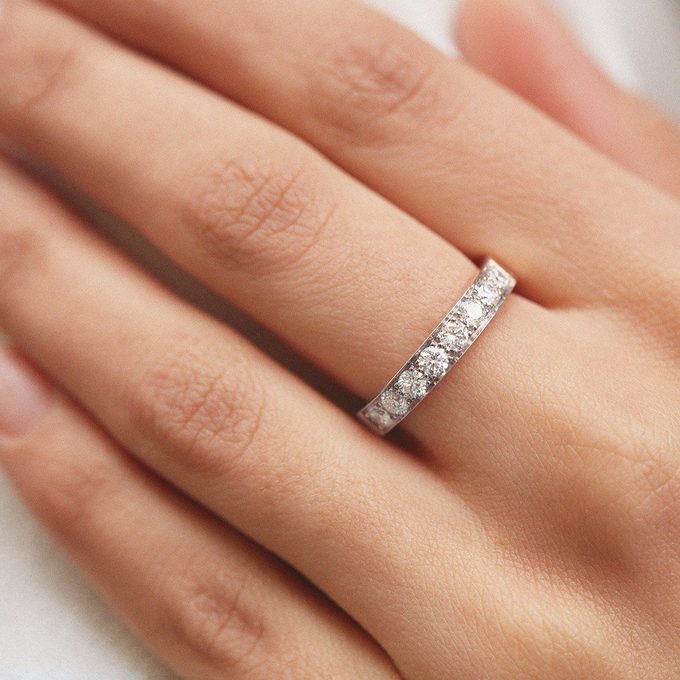
And what is the situation today? Although for instance wedding rings made of white gold still lead, yellow gold jewellery is making a big comeback and rose gold, which has not been as well-known thus far, is also now in the limelight. This is despite the fact that the history of rose gold dates back to the 19th century, when it was used in Russia for the production of jewellery by the renowned jeweller Carl Fabergé. At that time, it was known as “Russian gold" and only when it spread to the rest of the world did it begin to be referred to as rose gold.
Nowadays the rose gold colour is a big trend in itself that has affected almost all areas of design, from home accessories to electronics. In our collection, you will find rose gold jewellery with diamonds or gemstones with soft colours such as aquamarine, morganite or amethyst. A romantic engagement ring with rose gold is a popular choice.
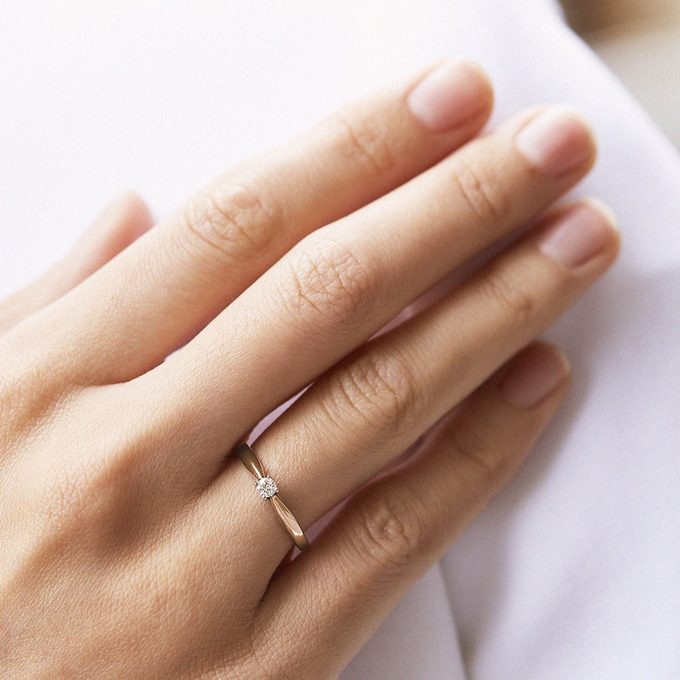
How to combine gold
In principle, if you like a colour combination and feel good in it, there are no prohibited combinations in all the colours of gold we have mentioned. Nevertheless, some colour combinations are a sure thing. For example, a heart necklace made of yellow gold perfectly complements a romantic dress in pastel colours. Medallions on thin chains go perfectly with flowy boho dresses as well as with a white T-shirt and jeans. Yellow gold itself has a warm tone, but when you pair it with clothes in cool colours, such as light blue, pink or purple, its colour will stand out beautifully. Yellow gold jewellery is simply a classic and you don't need to limit yourself too much when it comes to wearing it.
White gold is very easy to combine. It may be cooler, but it looks neutral and gets on well with all colours. But we do need to mention at this point the connection of white gold to the colour black. This combination will always look sophisticated and elegant.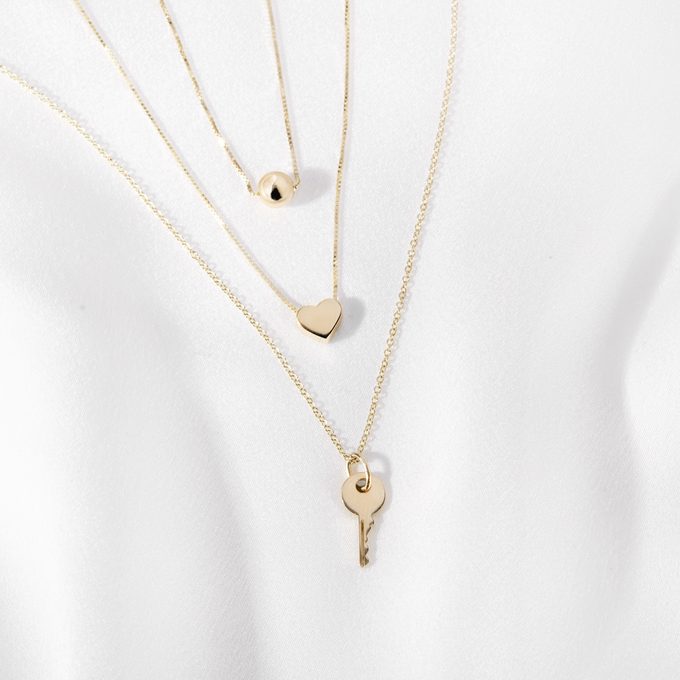
With rose gold jewellery, we also have an endless choice of possibilities. Rose gold looks very delicate and feminine with clothes in neutral colours such as beige, sand, caramel, cream, old pink or light grey. It shines to its fullest with white, dark blue and black. You can create an original combination by pairing it with mint green, dark green or yellow.
The good news is that you can also mix together jewellery in different gold colours. For example, don't be afraid to wear a combination of rose gold earrings in the form of hoops with white gold stud earrings in the ear at the same time. Fashion trends give it a thumbs up!
 Great Britain
Great Britain
